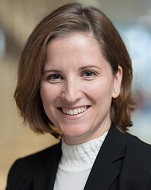
In the Grand Duchy, school attendance is compulsory between the ages of 4 and 16. If you are new to Luxembourg, enrolling your children in the Luxembourgish education system (from primary to secondary school) can be a daunting task. There are so many options that it is often difficult to choose the right model. Between public schools, private schools and international schools, which ones are the best suited for your children?
State-run, free public schools (not to be confused with public schools in the UK which are fee-charging independent schools)
Basic or primary education ("enseignement fondamental") covers the first nine years of schooling and is divided in four learning cycles. It starts at age 3 (optional) or 4 (compulsory), improving children’s social skills and teaching them Luxembourgish as the language of communication for all children, irrespective of their nationality. Primary education in Luxembourg is multilingual: children begin to read and write in German from cycle 2, in French from cycle 3 and basic school teaching languages are a combination of Luxembourgish, German and French by cycle 4. Recently some public schools have also started offering a curriculum based on that of the international schools including an English language section.
Depending on the chosen type, secondary education lasts six or seven years. Classical secondary education prepares pupils for higher studies whereas technical secondary education is directed towards working life. During the fourth cycle of primary education, pupils participate in an orientation process and, at the end of the cycle, are steered towards one of the two types of secondary education based on their aspirations and abilities.
Fee-paying private schools
Most of them follow the same syllabuses and prepare pupils for the same diplomas as the state-run schools. There are also two independent method schools under the supervision of Luxembourg regions and educational laws: the Montessori Luxembourg primary school and the Waldorf School of Luxembourg.
International schools
In addition to public and private schools, there are some public and fee-paying international schools which provide a different curriculum and do not award the same diplomas. If your children have already started their education in your home country, international schools can be the perfect solution. They may be able to continue with the same curriculum or study an international curriculum. International schools follow a curriculum model from France, United Kingdom or Germany or provide internationally accepted accreditation such as the European Baccalaureate and the International Baccalaureate.
If you choose an international school for your children, apply directly to the school as soon as possible. Many schools have waiting lists and preference may be given to students based on nationality.
You can read the full article here.









